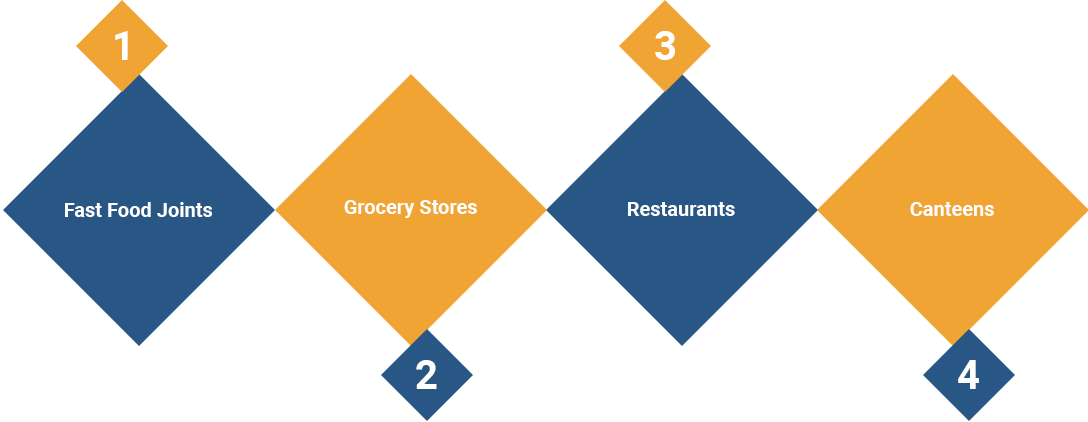FSSAI (FOSCOS) Annual Return Filing
Every Food Business Operator that is issued a State or Central FSSAI License and engaged in the Manufacturing or Importing of Food Products (Other than Milk Products) is required to furnish FSSAI Annual Return. The due date of filing the annual return of on or before 31st May of each year as provided under sub-clause 1 of Clause 2.1.13 Food Safety and Standards (Licensing and Registration of Food Businesses) Regulations, 2011. In case both of the following eligibility criteria are fulfilled by your Food Unit, you are required to file the annual return.
- FBO is granted food State License or Central License, and
- FBOs involved in Manufacturing, exporting and Importing Food Products or Manufacturing of Milk and Milk Products.
It usually takes 2 to 3 working days.
- Filing of FSSAI Returns
- Purchase of plan
- FIll in the details in the template provided
- Upload documents on vault
- Return form prepared by Tax Expert
- Filed by Our Experts
- Food product name which is being manufactured, exported, imported, or handled.
- Bottle size, can size or size of any other package,
- Quantity in the metric ton,
- Value of Food product
- Quantity in Kgs which is being exported or imported,
- Selling price per unit of packaging or per kg
- Name of the countries where food products are exported,
- Rate per unit or kg of packaging CIF/FOB
- Mandatory Last FSSAI Annual Returns
Everything about FSSAI Annual Filing that you need to be aware of..
Overview of FSSAI Annual Return
The Government of India has introduced the Food Safety and Standards Act, 2006 with the motive to regulate and prevent the food industry. The Food Safety and Standard Act, 2006, consist of laws that direct the sale, manufacturing, storage, distribution, and import of food items within the country. However, it would be good to ensure that all the proper criteria and compliances are duly fulfilled by the food business operator.
The term food safety guarantees that food is healthy and clean and is free from diseases like stomach aches, poisoning, etc. To ensure the purity of food and packed food items the Food Safety and Standard Act, 2006 was enacted. It has framed the food safety laws and regulates the food industry relating to manufacturing, sale, storage, distribution, and import.
What are the Kinds of Annual Return?
What are the Kinds of Annual Return?
The kinds of FSSAI Annual Return laid down under the FSSAI Act are-

- FSSAI Form D1
Food business units involved in manufacturing, importing, labeling, packing, re-labeling, and re-packing needs to file FSSAI Form D1 which is mandatory for them. The form is prescribed by the Food Safety Commissioner and is a mandatory for the FBOs irrespective of the production they are involved in.
The FSSAI annual return-Form D1 should be filed on or before 31st May of every fiscal year. The form is filed with the Licensing Authority depending upon the type of food products sold by the FBO in the preceding financial year.
- FSSAI Form D2
Form D2 is filed half-yearly and not every food business operator is eligible to file Form D2. Instead, FSSAI license holders who are involved in the manufacturing and distribution of milk or milk products can file Form D2. Form D2 is filled from 1st April to 30th September and from 1st October to 31st March of every financial year.
What are the Essentials that are required to be kept in Mind while Preparing the Food Products?
What are the Essentials that are required to be kept in Mind while Preparing the Food Products?
Following are the key essential that the Food Inspection authority shall confirm for every food Article:-
- All Food substance or processing aid should be in line with the Act and regulations.
- Any harmful substances, pollutants, or any toxin that may cause harm to human health is present in the food product.
- Avoidance of any insecticides or pesticides in an article.
- Also the food item should be marked and labeled properly.
The food authority needs to observe the Food Safety Control System. The Commissioner appointed by a state government is responsible for the successful application of food safety and standards.
Who Should File the FSSAI Annual Return?
Who Should File the FSSAI Annual Return?
- Every FBO who has a business turnover similar to or more than Rs. 12 Lakhs
- Every business operator selling, importing, exporting, manufacturing, distributing, storing, handling/transporting any type of food product has to file FSSAI Annual return
- The business operator involved in the distribution and manufacturing of milk has to file half yearly returns.
What are the Benefits of Complying with FSSAI Annual Return in India?
What are the Benefits of Complying with FSSAI Annual Return in India?
There are numerous benefits of complying with FSSAI Annual Returns in India, few of them are given below:-
- Sustain Reputation
Annual Compliance by an establishment or individual which is registered under the requirements of FSSAI would sustain as well as comparatively increases the overall reputation of the company/entity. It will enable the public to trust an entity which complies with the obligations related to annual compliance as prescribed by the Government of India.
- Increase In Brand Value
Any company will concede more reputation in the eyes of consumers that has FSSAI license and complies with the rest of the compliances. Along with such benefits, the value derived by the entity would be more in comparative to the Non complaint entities in the market.
- Gets Government Support
Another benefit from this form of annual compliance enables more government support for the entities that comply with the FSSAI requirements.
How to file FSSAI Annual Return in India?
How to file FSSAI Annual Return in India?
The food Business operator can file for FSSAI annual return as per their convenience. They can opt for the below-mentioned process-
- The Only Merchant can opt for an online system for Quarterly annual report.
- The Food business operator processing milk or milk products shall file half yearly return in Form D-2. Subsequently, the food business operator shall submit it physically to the respective Central or State Licensing Authority for the period starts from 1st April to 30th September and 1st October to 31st March of every financial year in a month from the end of the period.
- Manufacturers and Importers dealing in the food business have to file an annual return (Form D-1). Subsequently, they shall submit it physically to the respective Central or state licensing Authority on or before the starting of 31st May of every year for every food class operated by him during the previous financial year.
What is the Due Date for Filing the FSSAI Annual Return?
What is the Due Date for Filing the FSSAI Annual Return?
The due date for filing the FSSAI Annual Return are given below, which are as follows:-
FSSAI Returns | Due Dates | To Be Filed By |
Form D1 | 31st May | Every food manufacturer, importer etc. |
Form D2 (Half-Yearly Return) | 30th September/30th March | Manufacturer of milk/milk products |
Note-All food business operators shall file a separate return for every license issued under the regulations, regardless of whether the same food business operator carries more than 1 food license.
Who all are Exempted from Filling FSSAI Annual Return?
Who all are Exempted from Filling FSSAI Annual Return?

Penalty for Late filing of FSSAI Annual Return
Penalty for Late filing of FSSAI Annual Return
According to Section 2.1.13 (3) of FSS (Licensing and Registration) Regulations, 2011, if the food business administrators don't record the return within the prescribed period, at that point a fine of Rs 100 will be forced on them consistently and will continue expanding if the default proceeds.
Additional Regulations under the FSSAI Act
Additional Regulations under the FSSAI Act
A food business must comply with the given mentioned compliances:
- FSSAI rules state factory’s sanitary and hygiene and also keep a record of worker’s hygiene.
- Keep up day by day records of creation, crude materials, use, and sales independently.
- Guarantee that the source and norms of raw material utilized are of ideal quality.
- Not to produce, store or expose for sale, any article of food in any premises that is close by or part of any privy, urinal, sullage, channel, or spot of the capacity of waste issue.
- Daily, clean the machines and other equipment.
- Guarantee testing of pertinent synthetic as well as microbiological contaminants in food items, at any rate once in a half year.
- Guarantees that the temperature is exact all through the store network from the spot of obtainment or sourcing until it arrives at the end buyer.

